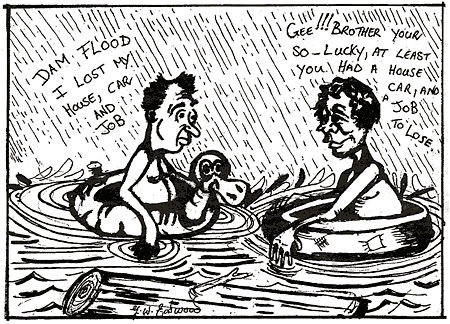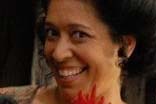Aboriginal people in Australia
Explore the diversity of Aboriginal people: Population facts & statistics, life expectancy, identity, remains repatriation, suicide and racism & how to avoid stereotypes.
Selected statistics
- 103
- Rank of Aboriginal Australians on the United Nations Index of Human Development (which considers life expectancy, literacy and standard of living). [1]
- 4
- Rank of all Australians on the United Nations index.
- 517,200
- Number of Aboriginal and Torres Strait Islander people in 2006. [2]
-
60% - Percentage of Aboriginal children who went on a holiday or trip away in 2007. [3]
-
28% - Percentage of Aboriginal children with teenage mums.
-
20% - Percentage of Aboriginal teens not living with either parent.
- 3
- Times the Aboriginal male suicide rate is higher than non-Aboriginal men. Most suicides happen between 25 and 34 years of age. [4]
-
80% - Percentage of Aboriginal people living in capital cities. [5]
-
24.5% - Percentage of Aboriginal people who were married in 2016; 11.2% were either divorced or separated. [6]
-
61% - Percentage of Aboriginal people who had never married in 2016. [6]
-
46% - Percentage of Aboriginal people who believe they have high trust towards Australians in the general community. [7]
-
27% - Percentage of Australians in the general community who believe they have high trust towards Aboriginal people. [7]
-
86% - Percentage of Aboriginal people in 2018 who agree they are proud of Aboriginal and TorresStrait Islander cultures (90% in 2016). [7]
-
62% - Percentage of Australians in the general community in 2018 who agree they are proud of Aboriginal and TorresStrait Islander cultures (60% in 2016). [7]
List of articles
24 myths you might believe about Aboriginal Australia

5 steps towards volunteering & engaging with Aboriginal communities

Aboriginal communities are breaking down

Aboriginal humour

Aboriginal Identity: Who is 'Aboriginal'?

Aboriginal population in Australia

Aboriginal remains repatriation

Aboriginal suicide rates

Admired overseas, shunned at home

Advanced support: The dos and don'ts of an Aboriginal ally

An average Aboriginal person's life in Australia

Bullying & lateral violence

Deconstructing Aboriginal identity myths

Domestic and family violence

Famous Aboriginal people, activists & role models

First Nations people awarded an Australian honour

Gambling and Aboriginal people

Gambling support programmes

How to deal with racist people

How trauma affects Aboriginal life

LGBTI Aboriginal people – diversity at the margins

Mixed race couples

Racial discrimination in Australia

Racism in Aboriginal Australia

Remains repatriation timeline

Respect for Elders and culture

Sorry Business: Mourning an Aboriginal death

Stereotypes & prejudice of 'Aboriginal Australia'

Torres Strait Islander culture

What is the correct term for Aboriginal people?

What you need to know about reconciliation

Who is an 'Aboriginal leader’?


Indigenous people around the world
Australia is not the only country that has indigenous peoples. (Check Wikipedia for an extensive list.)
| Country | Aboriginal groups | Percentage of population |
|---|---|---|
| Australia | 250 Aboriginal nations, Torres Strait Islanders | 3% |
| Canada | First Nations, Inuit, Métis | 4.9% |
| New Zealand | Māori | 14.9% |
| Norway | Sámi (Lapps) | 1.1% |
| Sweden | Sámi (Lapps) | 0.3% |
| USA | Native Americans | 1.6% |
Many Aboriginal people don't have a birth certificate
You need a birth certificate to get a job, open a bank account or engage with many basic government services: getting a driving licence or passport, enrol in school, getting a government benefit or tax file number.
"Without a birth certificate, it is difficult, if not impossible, for an individual to fully participate in society," says Dr Paula Gerber, from the Monash Faculty of Law. [9] But that is exactly the situation many Aboriginal people or their children are in.
Studies found that between 17 and 29% of Aboriginal children under 16 years of age do not have birth certificates because their parents did not register them. [9][10]
There are several reasons for this: [9][10]
- Births, Deaths and Marriages Registry offices are only located in capital cities, sometimes hundreds of kilometres away from Aboriginal communities.
- Aboriginal people still suffer from the traumas inflicted by the policies that led to the Stolen Generations. In their memory, contact with bureaucrats is inherently linked to trouble and potential child removal.
- Many have trouble reading formal English and fear harm could be done to them again.
- Fees, especially for late registration, might be prohibitive.
- Aboriginal mothers were teenagers when they had their first child.
- Mothers lived in more socioeconomically deprived and remote areas or gave birth in a rural hospital.
- Mothers smoked during pregnancy or had an alcohol‐related diagnosis around the time of the birth.
- The mother did not have private hospital insurance or her own birth was not registered.
A missing birth certificate has also been linked to unlicensed driving and subsequent incarceration. [10]
You can watch a summary video or download a PDF copy of the Queensland Ombudsman's 2018 Indigenous Birth Registration Report.
Births, Deaths and Marriages Registries can exercise discretion to waive fees. Ask for the discretion to be exercised if you have trouble paying the fee.
Are Aboriginal people Australian citizens?
A recurring topic in the discussion about Aboriginal identity and self-image is if Aboriginal people are Australian citizens in the sense of the law.
The answer is important as it has consequences for the discussion of self-determination and rights to the land.
Michael Anderson, Convenor of the Sovereign Union of First Nations and Peoples in Australia and Head of State of the Euahlayi Peoples Republic, has researched the issue extensively. He concludes:
"The First Nations and Peoples in Australia are not, and have never been, British subjects nor Australian citizens. Any review of Australia's citizenship and the status of British subjects will show that First Nations and Peoples in Australia have at no time been made subjects of the kings or queen of England by way of Letters Patent or Orders in-Council, stating that the kings or queens of Britain recognise us as part of the monarch's realm and/or dominions. Early records show by way of legislation that First Nations Peoples within Australia have always been classified as ‘aliens’ under State protection laws."
Aboriginal people and assimilation
Until 1965 Australia had an assimilation policy in place which aimed at making Aboriginal people blend into white society as much as possible. Though abandoned decades ago, being 'assimilated' has become some kind of cuss word, even among Aboriginal people, especially those living in big cities or working for the government.
The following story was written by an Aboriginal woman in response to general accusations of some Aboriginal people becoming 'assimilated'. [11]
Story: "How am I assimilated?"
"I don't see myself as any different from any other blackfulla. I know who I am, I know my country, my family ties, my culture and customs, so how am I assimilated? Is it just because I have an education and work in a government department? If so, then that to me is not assimilation or stereotyping, it's using the knowledge and skills I have to provide a better, more culturally appropriate service to Aboriginal people and community.
"[Working for the government] I can change the thinking of those around me so they are better informed when working with my people and my community... I help break down those stereotypes that non-Aboriginal people have of my people and make sure that my people are given a voice when it comes to policy and procedures that have a direct impact [on us].
"[We haven't given up,] we are just using the tools that whitefullas have given us to empower our people and create a culture of change."
Get migrants better opportunities?
For several years there were tensions between the African and Nyoongar communities in the main migrant resettlement areas in Perth's northern suburbs [12]. But why?
Elders believe that receiving an official welcome to country when they arrive to Australia is particularly important for black migrants, especially Africans.
Many Aboriginal people still feel oppressed in Australia and notice that migrants seem to get preferential treatment. "There's a feeling amongst a lot of Aboriginal people that newcomers to our country, no matter what race, get better opportunities and access to services than they do," says Nyoongar elder Irene Stainton. [12]
Nyoongar man Grant Garlett agrees. "There are a lot of problems that we've been trying to deal with for years and we never get anywhere. A lot of migrants do get more attention and facilities and all of that stuff," he says.
How can we heal from history?
Since invasion, Aboriginal people had to process the often permanent loss of many elements of their culture: their land, knowledge, language, children, autonomy, sacred sites, stories, connection to culture, identity. It is no surprise that this caused trauma that is passed on to the next generation.
While Aboriginal people deal with the consequences of colonial Australian history, non-Aboriginal people have to deal with the causes of this history. They condemn feelings of guilt and shame to the dungeons of their minds and exclude a deeper discussion from textbooks and public debate.
How can both groups start to heal?
Psychology Professor Paul Rhodes from the University of Sydney said that bushfire victims, who had often lost everything they owned and experienced similar trauma levels as Aboriginal people, "needed a supportive national atmosphere to help them heal". [13]
For Aboriginal people, this supportive national atmosphere would be a community of non-Aboriginal people who
- are knowledgeable about Australia's history, including its darkest moments;
- own this history as theirs, free from guilt and shame; and
- have built empathy as a result of their understanding of Aboriginal history.
Understanding can lead to empathy, but not ignorance. And empathy paves the way for support.
Another dimension of healing is country. Research has shown that for Aboriginal people to heal from trauma they need a connection to land. [14] But as the dominant culture takes away that land, access to it, or even destroys it, this vital link to healing is severed.
Find out what you can do today to become an informed supporter.
Aboriginal skin groups
Aboriginal people differentiate between different 'colours' or skin groups. Once you know a person's skin group you know their relation to you, their obligations, and how they must be treated.






























